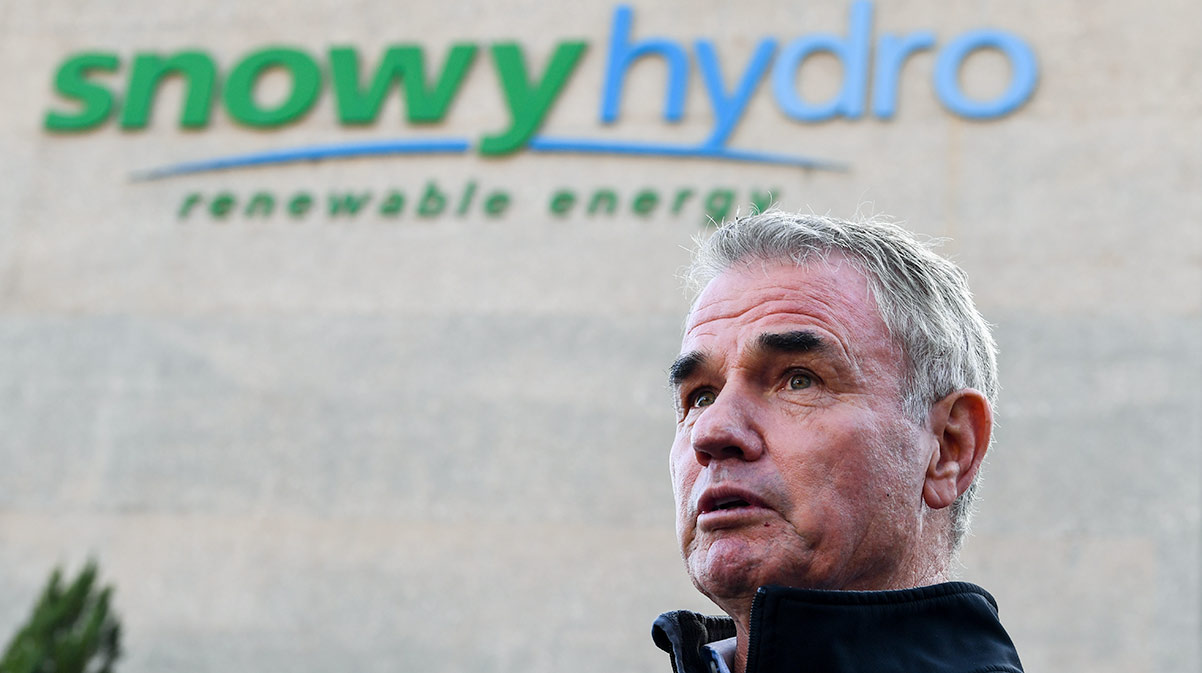Snowy Hydro CEO Paul Broad has praised the role of gas in the energy market, and believes gas generators are not in competition with big battery projects for a place in the energy market.
Answering questions during a Senate estimates hearing on Monday evening, Broad said there was a strong business case for a new gas generator at Kurri Kurri, and flagged that new funds from its owners, the federal government, would be needed to build the new facility.
The Morrison government has threatened to build a new gas plant at Kurri Kurri if the private sector does not commit to building what it considers to be sufficient new generation capacity to replace the Liddell coal-fired power station that will close in 2023.
Broad also praised an article written by former chief scientist Alan Finkel, which argued that gas is still required as a transition fuel and that the fossil fuel has a key role to play in reducing emissions across the energy system.
In the piece, Finkel argues that wind, solar and storage are not ready to deliver reliable supplies of electricity, and so gas generation is needed as an interim measure, which can then be phased out as the other technologies improve.
The Snowy Hydro CEO said that he agreed with Finkel’s assessment.
“[Batteries and gas generators] affect different parts of the market and gas is a wonderful [sic] I think Alan Finkel did extremely well today in the Australian. I think his article outlining the case of gas very strongly. We support what Alan was saying,” Broad said.
The Snowy Hydro CEO dismissed the announcements of plans for major big battery projects in New South Wales, including a 700MW proposal from Origin Energy to build a battery at the site of the Eraring power station, Neoen’s plan to build a 500MW battery at the site of the former Wallerawang power station, and CEP’s plan to build a massive 1,200MW big battery in Kurri Kurri itself.
Snowy Hydro’s chief operating officer Roger Whitby told Senate Estimates that he believed gas peakers and big batteries were not competing against each other, as they served different parts of the energy market.
“Batteries provide energy for a very short period of time. Conversely, gas turbines provide energy for much longer durations under critical demand conditions. Take, for example, the extended weather system that we’re seeing at the moment where, obviously, solar is not viable for very extended periods due to the cloud cover, etc.,” Whitby told Senate Estimates.
“Under those sorts of conditions, batteries simply cannot provide energy for any sustainable period of time. Hence, gas turbines come into their own for those sorts of circumstances. So in that way, they compete in very different parts of the market.”
Broad said that the cost of constructing a 750MW gas generator at Kurri Kurri would likely fall between $600 and $650 million and that Snowy Hydro would be looking to raise new equity in the project to finance construction, which would likely require a further injection of funds into Snowy Hydro by the federal government.
Broad said that he expected the potential investment in Kurri Kurri to have a very strong financial case. Snowy Hydro is expected to finalise the business case for the Kurri Kurri plant shortly, to be delivered to the Morrison government ahead of a financial investment decision expected to be made before the end of April.
“All the work we’ve done today clearly shows it is a very, very strong financial case to invest,” Broad said.
In an earlier session of Senate Estimates on Monday, officials from the Department of Industry, Science, Energy and Resources said that they believed that just 30MW of new generation capacity had reached a firm investment decision – and this was an upgrade to an existing coal-fired power station.
“The only thing that has been firmed today is a 30-megawatt upgrade to the Mount Piper coal power station, and so the government remains committed to stepping in should the private sector not step up and commit to building that 1,000 megawatts themselves,” head of the department’s electricity division, Rachel Parry, said.
This is despite the commitment by AGL to add 100MW of capacity to its Bayswater plant, and build big batteries at Liddell and elsewhere in NSW. The Australian Energy Market Operator estimates that nearly all the 1000MW it said was needed to replace Liddell has been committed.
The department’s stance raises the prospect that the Morrison government will proceed with the construction of the 750MW Kurri Kurri gas generator, regardless of the major battery storage commitments being made by key energy market participants, and could see a project proceed that is much larger than the identified supply gap expected to be left by the closure of Liddell.
Broad said that the financial investment decision would rest with Snowy Hydro’s shareholders, being the Morrison government.










